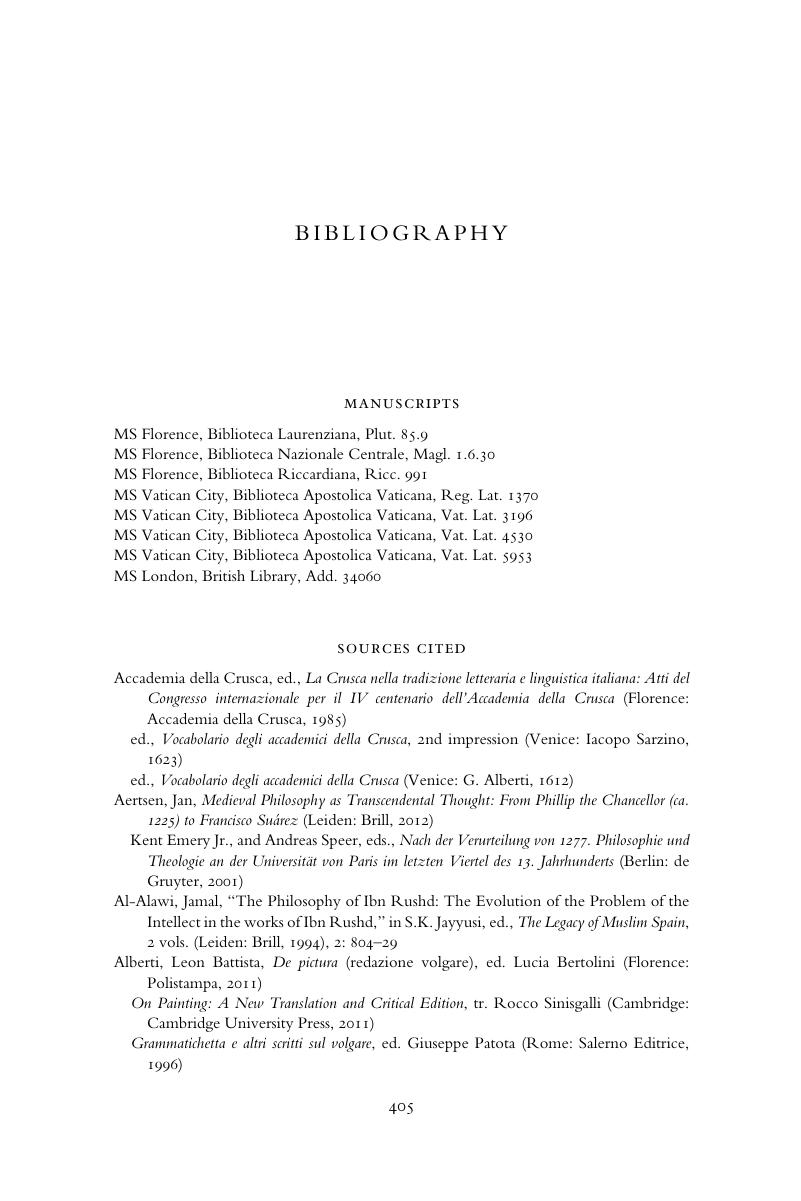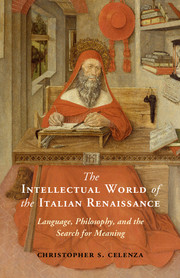Book contents
- The Intellectual World of the Italian Renaissance
- The Intellectual World of the Italian Renaissance
- Copyright page
- Dedication
- Contents
- Preface
- Acknowledgements
- Abbreviations
- 1 Beginnings
- 2 Dante, Petrarch, Boccaccio
- 3 The Italian Renaissance Takes Root in Florence
- 4 Florentine Humanism, Translation, and a New (Old) Philosophy
- 5 Dialogues, Institutions, and Social Exchange
- 6 Who Owns Culture? Classicism, Institutions, and the Vernacular
- 7 Poggio Bracciolini
- 8 Lorenzo Valla
- 9 The Nature of the Latin Language: Poggio versus Valla
- 10 Valla, Latin, Christianity, Culture
- 11 A Changing Environment
- 12 Florence: Marsilio Ficino, I
- 13 Ficino, II
- 14 The Voices of Culture in Late Fifteenth-century Florence
- 15 “We barely have time to breathe.” Poliziano, Pico, Ficino, and the Beginning of the End of the Florentine Renaissance
- 16 Angelo Poliziano’s Lamia in Context
- 17 Endings and New Beginnings: The Language Debate
- Epilogue
- Bibliography
- Index
- References
Bibliography
Published online by Cambridge University Press: 30 November 2017
- The Intellectual World of the Italian Renaissance
- The Intellectual World of the Italian Renaissance
- Copyright page
- Dedication
- Contents
- Preface
- Acknowledgements
- Abbreviations
- 1 Beginnings
- 2 Dante, Petrarch, Boccaccio
- 3 The Italian Renaissance Takes Root in Florence
- 4 Florentine Humanism, Translation, and a New (Old) Philosophy
- 5 Dialogues, Institutions, and Social Exchange
- 6 Who Owns Culture? Classicism, Institutions, and the Vernacular
- 7 Poggio Bracciolini
- 8 Lorenzo Valla
- 9 The Nature of the Latin Language: Poggio versus Valla
- 10 Valla, Latin, Christianity, Culture
- 11 A Changing Environment
- 12 Florence: Marsilio Ficino, I
- 13 Ficino, II
- 14 The Voices of Culture in Late Fifteenth-century Florence
- 15 “We barely have time to breathe.” Poliziano, Pico, Ficino, and the Beginning of the End of the Florentine Renaissance
- 16 Angelo Poliziano’s Lamia in Context
- 17 Endings and New Beginnings: The Language Debate
- Epilogue
- Bibliography
- Index
- References
Summary

- Type
- Chapter
- Information
- The Intellectual World of the Italian RenaissanceLanguage, Philosophy, and the Search for Meaning, pp. 405 - 431Publisher: Cambridge University PressPrint publication year: 2017



